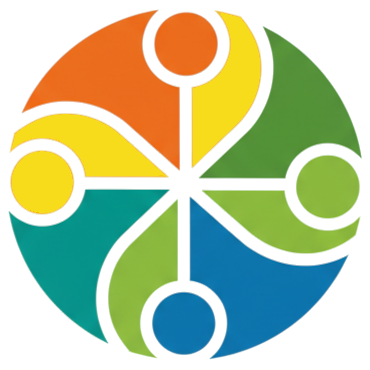| Back to main
How Syntrism Offers a Path Through DepressionDepression is often described as a state of disconnection—from joy, from purpose, from others, and sometimes even from the self. It narrows our perception, creating the illusion of isolation, stagnation, and hopelessness. For those who experience it, depression can feel like being severed from the living flow of the world. But what if the very nature of our reality is connection? What if healing could begin by rediscovering the bonds that still hold us, even when we can’t feel them? This is where Syntrism—a philosophy rooted in the belief that all beings, systems, and actions are fundamentally linked—can offer a powerful, compassionate perspective. Syntrism teaches that nothing exists in isolation. Every thought, feeling, and action is part of a larger dynamic system. From the movement of ecosystems to the flow of emotions between people, life is an intricate web of relationships. Depression, in this view, is not just a chemical imbalance or a psychological failing—it is a disruption in that relational flow. It is what happens when our internal connections (to self-worth, to meaning, to resilience) and external connections (to others, to community, to nature) begin to fray or break. Unlike traditional models that focus solely on treating symptoms within the individual, Syntrism invites a broader, more compassionate frame. It asks: What is out of balance in your web? Where have disconnections occurred—between your needs and your reality, your voice and your environment, your energy and the demands placed on you? Instead of labeling the depressed person as "broken," Syntrism sees them as entangled in a system that may no longer be nourishing them. One of Syntrism’s core principles is empathy and compassion, not just toward others, but toward oneself. Depression often brings with it harsh internal judgments—"I’m weak," "I’m a burden," "I should be better by now." Syntrism gently counters this narrative by revealing how suffering is never isolated. Your pain is not a personal flaw; it is part of a larger context. The world you move through—your relationships, your environment, your history—shapes your experience. This isn’t about deflecting responsibility; it’s about expanding awareness. Compassion emerges not from pity, but from understanding the complexity of being human in an interconnected world. This expanded view opens the door to systems thinking, another key component of Syntrism. Systems thinking encourages us to look at patterns rather than isolated problems. For someone experiencing depression, this means shifting the question from “What’s wrong with me?” to “What systems am I part of, and how are they influencing my well-being?” Perhaps the issue is not just internal, but relational: a job that stifles creativity, a family dynamic that discourages emotional expression, a digital environment that promotes constant comparison. Identifying these patterns allows for interventions that go beyond medication or therapy (both of which are valuable) and into deeper life redesign. Collective responsibility, another Interconnectivist value, has profound implications for how society approaches mental health. In many cultures, depression is still treated as an individual problem to be privately solved. But Syntrism reframes this: if we are all connected, then mental health is not a private burden—it is a collective concern. A community that isolates its members, devalues rest, or stigmatizes vulnerability contributes to the rise of depression. Syntrism invites us to build support structures that reflect our interdependence—whether that means mutual aid, peer-led spaces, accessible healthcare, or simply cultures of deeper listening. Sustainable living, both emotionally and practically, also plays a role. Depression is often a response to burnout, overextension, or chronic misalignment between our inner values and outer lives. Syntrism emphasizes the importance of designing lives and systems that nurture rather than exploit. What if we approached our emotional resources like we would a forest ecosystem? What if we stopped asking, “How can I be more productive?” and started asking, “How can I be in balance with my energy, my rhythms, and my relationships?” Living sustainably includes tending to joy, protecting time for rest, and honoring emotional cycles. Nature itself, which Syntrism holds as a fundamental teacher, offers one of the most powerful antidotes to the isolation of depression. In the natural world, everything is connected—roots communicate, seasons flow, and no creature thrives alone. Reconnecting with nature, even in small ways, can be a way back into the web: walking among trees, listening to birds, planting something and watching it grow. These are not distractions from depression—they are reminders of belonging. They are slow, steady affirmations that you are still part of something larger, even when it doesn’t feel that way. But Syntrism is not just about comfort. It is also about purpose—and how purpose arises from connection. Many people describe their depression as a loss of meaning. Syntrism suggests that meaning is not something we must create from scratch, but something we uncover through relationship. Helping someone, creating beauty, standing in solidarity, caring for something vulnerable—these actions reweave the threads of meaning. Even small gestures matter: a kind word, a shared moment, a creative act. In the web of life, no contribution is insignificant. Healing from depression is not a linear process. It can take time, and it often requires multiple forms of support—medical, psychological, spiritual, communal. Syntrism doesn’t replace any of these—it weaves them together into a holistic view. It says: You are not alone. Your suffering is part of a wider system, and that system can be changed. You are not broken—you are entangled. And entanglements can be undone, rewoven, and transformed. In the end, Syntrism offers a hopeful, dignified path for those navigating depression. It restores the sense that we are part of something—connected to others, to the Earth, to rhythms of healing, to sources of meaning deeper than any passing darkness. Depression says: "You are alone." Syntrism replies: You are part of the whole—and the whole is still holding you. |
 SYNTRISM
SYNTRISM
Exploring the philosophy of collective well-being through interconnected systems
